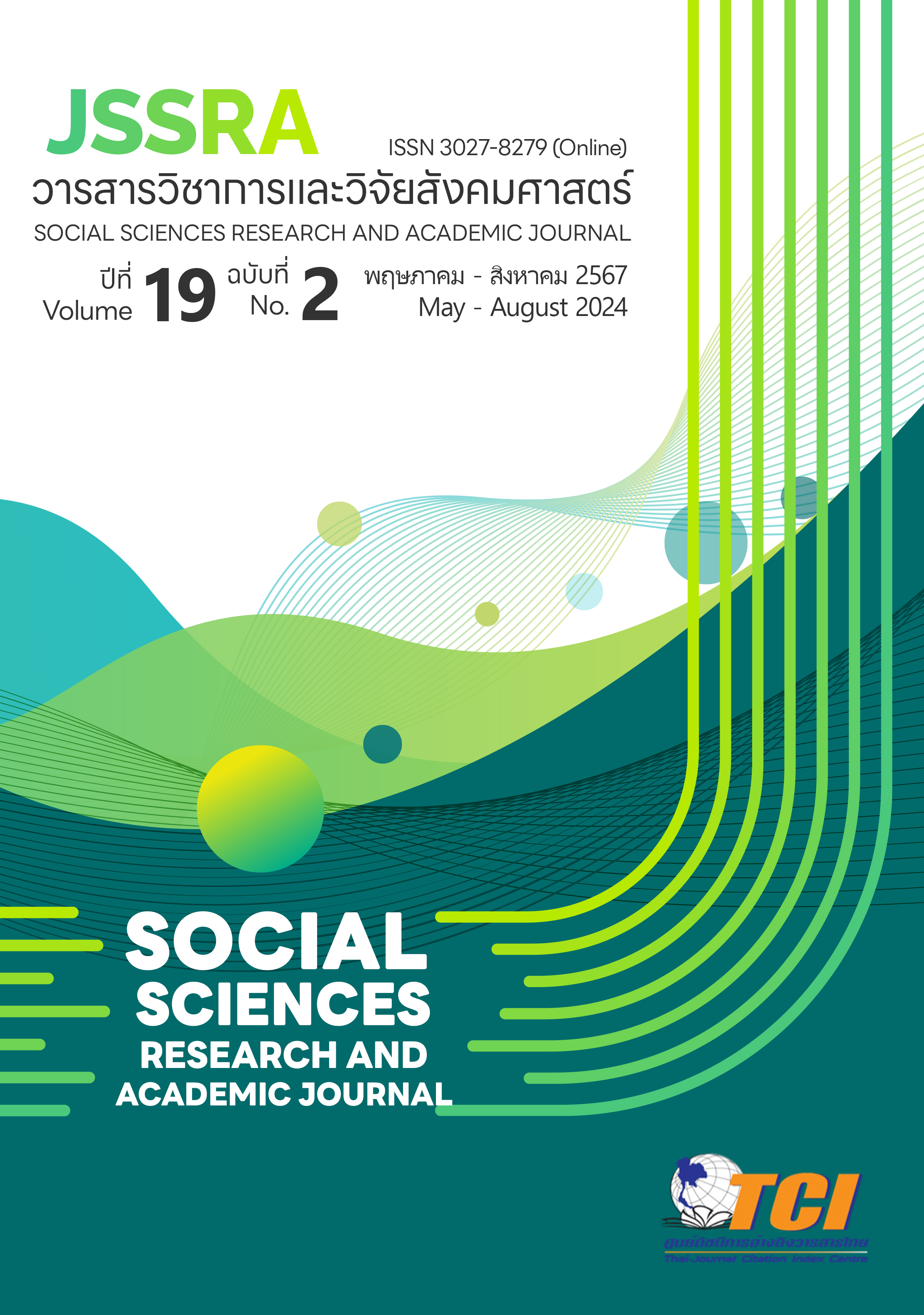The Effect of Learning Management by Using Context-Based on Mathematical Connection Ability and Attitude Toward Mathematics of Prathomsuksa 6 Students
Main Article Content
Abstract
This research was a pre-experimental research. This research aimed to: 1) compare the mathematical connection ability of prathomsuksa 6 students before and after learning by using context–based learning, 2) compare the mathematical connection ability of prathomsuksa 6 students after learning by using context-based learning with the criterion of 70 percent of the full marks and 3) compare prathomsuksa 6 students’ attitude towards before and after learning by using context–based learning. The sample group consisted of 22 Prathomsuksa 6 students at Watlamwa School that selected by cluster random sampling. The research instruments were 1) 12 context-based learning plans, 2) the mathematical connections ability test and 3) the mathematic attitude test. The data was analyzed using the mean, standard deviation, dependent sample t-test and one-sample t-test.
The research results found that: 1. The Prathomsuksa 6 students after learning by using context-based learning post-test was higher than pre-test with statistically significance at the .05 level. 2. The Prathomsuksa 6 students after learning by using context-based learning which was higher than the criterion of 70 percent of full marks with statistically significance at the .05 level. 3. The Prathomsuksa 6 students after learning by using context-based to attitude in Mathematics post-test was higher than pre-test with statistically significance at the .05 level.
Article Details
References
Ainley, J., Pratt, D., and Hansen, A. (2006). Connecting Engagement and Focus in Pedagogic Task Design. British Educational Research Journal, 32(1), 23-38.
Bennett, J., and Holman, J. (2003). Context-Based Approaches to the Teaching of 186 Chemistry: What Are They and What Are Their Effects?, In Chemical Education: Towards Research-Based Practice. (pp. 165-184), Dordrecht: Springer.
Chaimongkol, Y. (2014). The Effects of Learning Activities by Using the Context-Based Learning Approach to Enhance the Connection Competency on the Topic of Probability for Mathayomsuksa 3 Students. Master thesis, M.Ed., Naresuan University, Phitsanulok. (In Thai).
Darkwah, V. A. (2006). Undergraduate Nursing Students’ Level of Thinking and Self-Efficacy in Patient Education in a Context-Based Learning Program. Master thesis (Nursing), University of Alberta.
Deyucharoenporn, K. (2018). The Effects of Context-based Learning Management in the Topic of Biomolecules on Scientific Argumentation Skill and Learning Achievement of Second Year Cadets at Armed Forces Academies Preparatory School in Nakhon Nayok Province. Master thesis, M.Ed., Sukhothai Thammathirat Open University. (In Thai).
Gillbert, J. K. (2006). On the Nature of “Context” in Chemical Education. International Journal of Science Education, 28(9), 957-976.
Kruatong, T. (2010). Learning Science in Context. IPST Magazine, 38(166), 56-59. (In Thai).
Makanong, A. (2016). Mathematical Skills and Processes : The Development for Development. (3rd ed.). Bangkok: Chulalongkorn University Press. (In Thai).
Meyer, M. R., Dekker, T. and Querelle, N. (2001). Context in Mathematics Curricula. Mathematics Teaching in the Middle School, 6(9), 522-527.
Ministry of Education. (2017). Indicators and Core Learning Content Mathematics Learning Substance Group (Revised Edition 2017) According to the Basic Education Core Curriculum B.E. 2551 (A.D. 2008). Bangkok: The Agricultural Co-Operative of Thailand. (In Thai).
Seel, N. M. (2012). Encyclopedia of the Science of Learning. New York: Springer Science + Business Media.
Tangkawsakul, S. (2017). Development of Mathematical Activity Package by Using Context Based Approach and Mathematical Modelling to Enhance Mathematical Connection Abilities and Attitude Towards Mathematics of Ninth Grade Students. Master thesis, M.Ed., Chulalongkorn University. (In Thai).
The Institute for the Promotion of Teaching Science and Technology. (2017). Guide for Curriculum Mathematics Learning Substance Group (Revised Edition 2017) According to the Basic Education Core Curriculum B.E. 2551 (A.D. 2008) In Elementary Level. Bangkok: Author. (In Thai).
Tibpaeng, R. (2018). An Action Research for Developing Learning Management by Using Context-Based Learning in Ratio and Percentage that Promotes Mathematical Connection Ability for Tribesman Students in Grade 8. Master thesis, M.Ed., Naresuan University. (In Thai).


